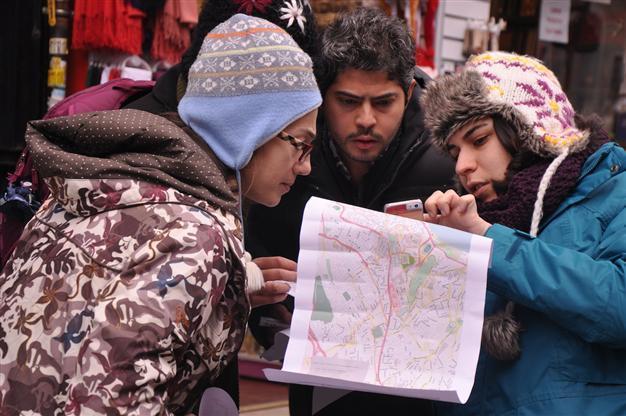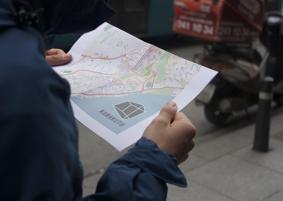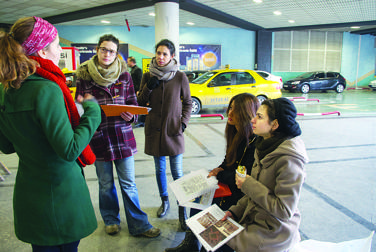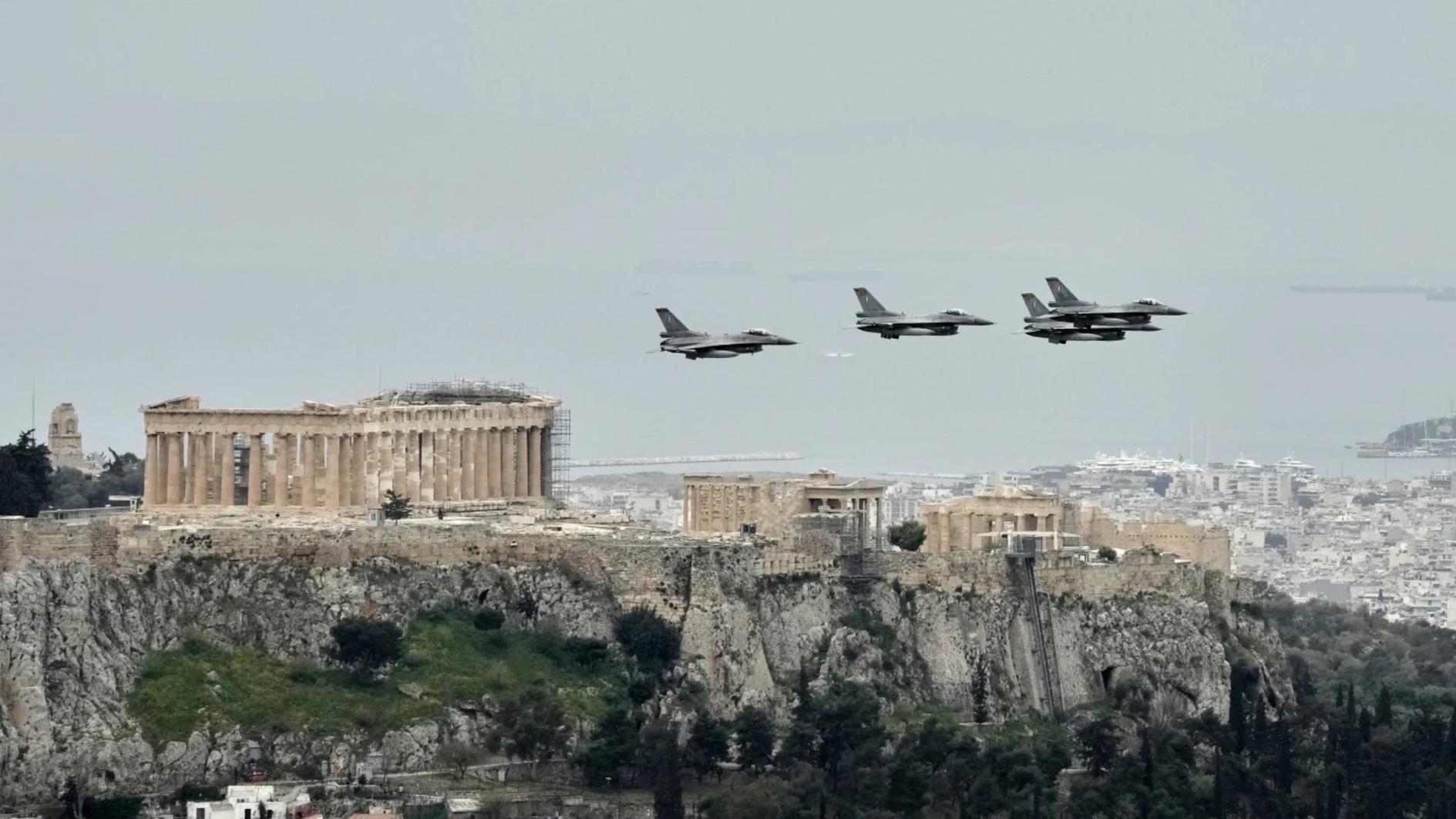New initiative Karakutu recreates history
Emrah Güler
 “Learning the conflicts of the past from different perspectives, especially from the points of view of the marginalized and the oppressed, will take us toward a better society and towards social reconciliation.”
“Learning the conflicts of the past from different perspectives, especially from the points of view of the marginalized and the oppressed, will take us toward a better society and towards social reconciliation.” These are the words of Emrah Gürsel, one of the founders of the Karakutu (Black Box), a recent initiative hoping to encourage alternative narratives suppressed by official history and introduce different perspectives about the past to society, especially young people.
“There are many problems standing in the way of our society. There is a domineering culture of violence and discrimination, where the strong oppresses the weak,” said Gürsel. “We believe that one of the major reasons for this is that the history we read and learn is missing pieces, distorted and one-sided.”
“The real reasons behind the violence and conflicts Turkey has been experiencing in the last century have not been addressed, and this in turn, hinders the institutionalization of democracy both in state and in society,” he said.
The ideas form the basic premise behind the evolution of Karakutu.
Gürsel has been actively involved in various civil society organizations as “one of the many who have been troubled by a society of hate and intolerance,” later working as a professional in civil society, working with young people for years. He has also worked as a coordinator and trainer in human rights projects.
 Creating new subjectivities
Creating new subjectivitiesGürsel is one of the people who founded Karakutu, most of whom are working in civil society organizations, and all of whom believe that discussions on history and the processes of rediscovery of history are limited to certain political movements and a handful of intellectuals. Including supporters and volunteers, Karakutu is now around 50 people.
The group primarily works with young people. “We believe that it is especially important for young people to remember the past from different perspectives to be able to create new subjectivities for a society in peace,” said Gürsel. “Both our vision and approach are directed at those between 16 and 25.”
Karakutu recently took off the ground with two Memory Walks in Istanbul in early February. “Memory Walks are participative activities of remembrance structured in nontraditional methods, where young people are not ‘students’ or ‘tourists’ but ‘explorers,’” said Gürsel. “For a whole day, young participants follow the clues they have been provided in groups, and explore stories of discrimination and violence hidden in the details of the city.”
When the participants reach a location, they are welcomed by young narrators. They talk about the stories that took place at those locations, stories not told by the official history. “Before and after the walk, participants gather and discuss how to remember rights violations and conflicts, and what individual responsibilities should be if we want a future in peace,” said Gürsel.
 Alternative narratives through Memory Walks
Alternative narratives through Memory WalksYoung people have been engaged in all stages of the first two Memory Walks, which took place on Feb. 8 in Istanbul’s Beyoğlu and Şişli districts. “Throughout all the stages, from selecting the locations to writing the texts, young people between 16 and 25 took active roles. We have worked on both the methods and the content for about six months, and had our first Memory Walks in February,” said Gürsel.
Karakutu plans to stage the walks at least once every month, with the next one planned for late March. “Our first target is to diversify the Memory Walks in terms of location, theme and methods,” said Gürsel.
As for other projects, Gürsel said: “Late last year, we organized a study visit to Germany to explore similarities and differences on how both countries reconcile with the past. We want to continue with these study visits, and develop training programs on larger crimes like genocide.”
As supporters for Karakutu continue to grow, cooperation also increases. Among some of the names that have contributed to the first Memory Walks are the Society Volunteers Foundation (TOG), the Third Sector Foundation of Turkey (TÜSEV), Sabancı University’s Gender and Women’s Studies Forum, Birzamanlar Publications, as well as the periodical Toplum ve Kuram (Society and Theory).
Karakutu is an independent initiative, and they need donations of individuals and institutions. “We offer alternative payment models like monthly payments in small amounts, as opposed to big chunks. Other contributions could be partnerships with universities, high schools, associations or cultural centers for Memory Walks and other projects. The most important contribution is volunteering,” said Gürsel.
If you would like to be part of Karakutu, check out their website at www.karakutu.org.tr.
















